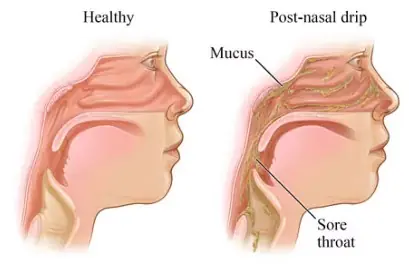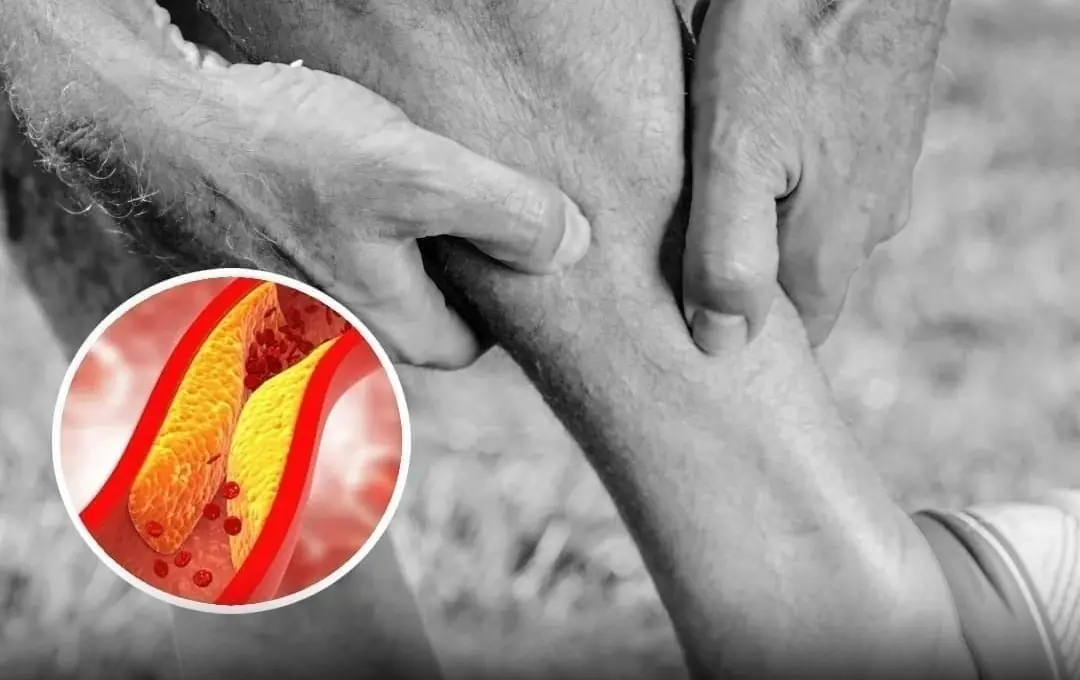
Understanding Dreams About De ceased Loved Ones: What They Mean and How They Help in Grieving

Dreaming about someone who has passed away can be an emotional and even eerie experience. Many people report vivid dreams where the deceased person seems alive, and these dreams can evoke a mix of emotions—joy, nostalgia, sadness, or even fear. While these dreams might feel unsettling or comforting, they are more common than you might think.
Michelle King, a licensed marriage and family therapist based in Southern California, emphasizes that such dreams are a normal part of the grieving process. "Dreams about loved ones who have passed away are common, and they often serve as a mechanism for processing grief," says King. In fact, studies suggest that nearly 60% of people who experience the death of a loved one have dreams about them. While most of these dreams are a mix of positive and unsettling emotions, some individuals find them to be predominantly distressing.
In this article, we’ll explore why we dream about deceased loved ones, what these dreams might reveal about our emotions, and how they play a role in healing. We will also examine the different types of dreams people may have about those they've lost and offer advice on how to cope with these dreams.
The Role of Dreams in Grief
Why Do We Dream?
The art of dream interpretation has been practiced for centuries. Ancient civilizations, such as the Greeks, believed that dreams could offer insight into both health and emotions. Hippocrates, the famous Greek physician who lived from 460–377 BCE, suggested that dreams might reveal medical conditions. In modern psychology, Sigmund Freud proposed that dreams are a way to process unconscious conflicts, while Carl Jung believed that dreams are a window into understanding our deeper feelings and desires.
When it comes to dreams about loved ones who have passed, the question arises: what do these dreams signify? For many, they are a manifestation of unresolved grief or longing. "Dream interpretation isn’t an exact science, and it can vary based on personal and cultural factors," says King. "However, these dreams can offer valuable insights into how we are dealing with our grief and our feelings about the deceased."
From a psychological perspective, dreaming about someone who has passed away can indicate a need to process emotions surrounding that person’s death. King suggests that such dreams might represent unresolved issues with the deceased, a desire for closure, or a reflection of how their absence still affects your life.
Grief and Healing Through Dreams
Grieving is a highly personal journey, and there is no single timeline for healing. Dr. Elisabeth Kübler-Ross, a renowned psychiatrist, identified five stages of grief: denial, anger, bargaining, depression, and acceptance. These stages are not linear, and people may experience them in different orders, or even skip some altogether. Some individuals may take longer to process their grief, while others may find that certain stages are more challenging than others.
Dreams about loved ones are often tied to this grief process. "Grief dreams are not only natural but also serve as a way for our minds to process the overwhelming emotions we’re experiencing," explains Margaret Pendergrass, LCSW, GC-C, a certified grief counselor. "These dreams can arise spontaneously, often as nightmares or distressing visions, but they are part of our brain’s efforts to heal."
Grief dreams can also provide comfort. They might help you reconnect with the person you’ve lost or provide emotional relief by allowing you to confront and process your feelings. "Dreams where you get to say goodbye or share something important with the deceased can offer a sense of closure," says King.
The Connection Between Grief and Dream Types
Dreams about loved ones who have passed are often categorized into specific types. Here are some of the most common types of dreams people experience after losing someone they love, along with interpretations of what these dreams may signify.
1. Reunion Dreams
In reunion dreams, the dreamer interacts with the deceased person in a normal setting as if they were still alive. These dreams might take place in familiar locations, and the deceased may appear healthy and vibrant. "These dreams often reflect a desire to reconnect with the person or symbolize their ongoing presence in the subconscious mind," King explains.
Such dreams can bring comfort and a sense of relief, offering an emotional reconnection with the person you've lost. They may also symbolize that the dreamer is coming to terms with their grief or seeking emotional resolution.
2. Dreams Where the Person Is Still Alive
It’s also common for people to dream that their deceased loved one is still alive. In these dreams, the individual may even explain that their death was a misunderstanding or a mistake. "This kind of dream often reflects the dreamer’s struggle to accept the reality of the person’s passing," says Pendergrass. "It shows that they are still processing the shock and the finality of the loss."
These dreams can be jarring but also serve as an indication that the person is not yet ready to accept the finality of the loss, and their mind is still working through this difficult transition.
3. Message Dreams
Some dreams involve the deceased person delivering a message or offering advice. These types of dreams can feel particularly significant, as they seem to carry a deeper meaning or a sense of guidance. However, King clarifies that these messages are often more about the dreamer's internal dialogue than actual communication from the deceased. "A message dream can reflect the dreamer's need for guidance or a desire to receive some form of closure," King says.
Though these dreams may not be literal, they can offer emotional comfort and reassurance during a difficult time. They could symbolize the dreamer's subconscious attempt to process unresolved feelings or seek answers.
4. Distressing or Unsettling Dreams
When the deceased appears distressed, or the dream itself is disturbing, it may reflect unresolved feelings such as guilt, anger, or sorrow. "Distressing dreams often reveal the emotional turmoil the dreamer is experiencing," explains King. "These dreams are a manifestation of the grief process and can help uncover emotions that need to be addressed."
These dreams may feel overwhelming or upsetting, but they also offer an opportunity to examine underlying issues and work through difficult emotions that might otherwise be hidden.
5. Dreams About the Past
Many people experience dreams where the deceased person appears as they did in the past, when they were still alive. These dreams may involve revisiting old memories or interacting with the person in a way that reflects the past relationship. Pendergrass notes that "these types of dreams can bring past memories to the surface, especially memories that may have been unresolved or that the dreamer didn’t fully understand at the time."
Such dreams may provide insight into feelings or experiences that were never fully processed, allowing the dreamer to work through them in the safe space of the dream world.
Coping With Dreams About Deceased Loved Ones
While dreams about deceased loved ones can be powerful and healing, they can also be emotionally challenging, especially if they evoke feelings of sadness or unresolved grief. Here are some strategies to help manage the emotions that arise from these dreams.
1. Journaling
Writing about your dreams is a useful tool for processing feelings and uncovering deeper meanings. "Keeping a dream journal can help you reflect on the emotions and themes within your dreams," says Pendergrass. "By writing down your dreams, you can identify patterns and gain insights into your emotional state."
Journaling also helps externalize emotions that may be difficult to express otherwise, allowing the dreamer to process their grief more effectively.
2. Self-Care Practices
Grieving takes a toll on both the mind and body. King recommends engaging in self-care practices such as:
-
Regular physical exercise to help relieve stress
-
Maintaining a balanced diet to support emotional and physical well-being
-
Practicing mindfulness techniques like meditation or deep breathing to manage stress
-
Ensuring you get adequate sleep to promote healing and emotional stability
These self-care activities can support the emotional processing that occurs during grief, helping to stabilize your emotional state and reduce the intensity of distressing dreams.
3. Seeking Professional Help
If dreams about a deceased loved one are causing significant emotional distress, it may be helpful to speak with a mental health professional. "Therapists can offer coping strategies and help guide you through the grieving process," says King. "They can help you work through unresolved feelings and provide support as you navigate your grief journey."
If you feel that your grief is interfering with daily life or causing you to feel overwhelmed, reaching out to a professional counselor or therapist can provide the support you need.
The Bottom Line: Understanding and Healing Through Dreams
Dreaming about someone who has passed away can be a deeply emotional experience, whether the dream is comforting, unsettling, or bittersweet. These dreams often reflect the ongoing process of grief and serve as a tool for emotional healing. By understanding the various types of dreams and how they relate to grief, individuals can begin to process their loss more effectively.
If you find that your dreams are helping you find closure, reconnect emotionally with your loved one, or process unresolved feelings, know that you are not alone in this journey. With the right support, whether through self-care, journaling, or therapy, you can work through the pain of loss and heal in a way that honors the memory of your loved one.
News in the same category


Is This the Lost Ark? Ground-Penetrating Radar Uncovers Intriguing Structures Beneath Turkish Site Tied to Biblical Legend

Hundreds of C@ncer-Causing Chemicals Found in Food Packaging: A Hidden Health Threat

Excessive Sleep Could Increase Dementia Risk: What You Need to Know

Bill Gates predicts three careers that AI won't replace

The Four Foods You Should Never Keep in Your Home: A Guide to Healthier Living

Kathryn Bernardo finally speaks up about rumors that she's now in a relationship

Experts Issue Warning About Frequent Use of Air Fryers: Here's What You Need to Know

Why Showering at Night Is Better Than in the Morning
For those struggling with poor sleep quality, muscle tension, or skin issues, showering at night may be a simple yet effective solution to improve overall health and well-being.

What Are Eye Floaters? Understanding Their Causes, Symptoms, and When to Seek Help

8 Anti-Can cer Foods to Add to Your Diet for Prevention

Understanding Mucus: What It Is, What It Means, and How to get rid of it

What Does It Mean To Wear a Ring On The Right Hand
The right hand represents strength, action, and decisiveness, while the finger and material you choose can further express your personality, values, and aspirations.

Over 200 People Are Killed By The “World’s Deadliest Food” Every Year, But Almost 500 Million People Still Eat It
No doubt there are many foods in the world that would make you feel full very quickly, but you do not usually find those at the dinner table every night.

Square Waves Are Real — and You Should Be Cautious When You See Them

Important Signs You Might Have Polymyalgia Rheumatica: A Comprehensive Guide

Off The Record: Scientists Warn of Unprecedented Global Warming Threats By 2200, Leading to Catastrophic Heatwaves, Famine, and Flooding
Scientists at Germany’s Potsdam Institute for Climate Impact Research predict a shocking rise in global temperatures by 2200, with devastating impacts including severe heatwaves, famine, and flooding. Even if carbon emissions are reduced, the future loo

How Your Feet Could Be Signaling Heart Problems and Clogged Arteries
Symptoms like pain, swelling, numbness, or changes in skin color can indicate underlying issues with circulation, including peripheral artery disease or even heart disease.

Man Over 700 Eggs In One Month To See What It Would Do To His Body. Here’s What Happened.
Dr. Nick Norwitz’s experiment of eating 720 eggs in 30 days provides an eye-opening perspective on the relationship between dietary cholesterol and heart health.
News Post

What Lies Beneath: Camera Dropped 305 Feet into Antarctic Ice Reveals Breathtaking Secrets of Earth’s Oldest Climate Record

Is This the Lost Ark? Ground-Penetrating Radar Uncovers Intriguing Structures Beneath Turkish Site Tied to Biblical Legend

No Paycheck, No Problem: What Pope Leo XIV Will Receive as the New Leader of the Catholic Church

Robert De Niro Slams Trump at Cannes: “This Is Not Just America’s Problem”

Hundreds of C@ncer-Causing Chemicals Found in Food Packaging: A Hidden Health Threat

Joe Biden diagnosed with aggressive prostate c@ncer; political leaders express support

Ivana Alawi Re-Blesses Her Entire Home Following Alleged Haunted Encounter
After experiencing unsettling events during an out-of-town trip, Ivana Alawi decided to have her whole house blessed again, sharing the spooky story in her latest vlog with Kyline Alcantara.

Donald Trump sl@mmed after sharing yet another baffling post about Taylor Swift

Ultimate Guide to Bridal Ubtan Recipes for Glowing, Radiant Skin: Timeless Beauty Secrets You Must Try
By consistently using these bridal ubtan recipes in the weeks leading up to your big day or any special occasion, you can unveil a luminous complexion that truly shines.

Excessive Sleep Could Increase Dementia Risk: What You Need to Know

Brooklyn Half Marathon Runner Passes Away During Race After Collapsing on the Course

I Saw Her Name Glowing on His Phone Screen And My World Shattered
A glowing phone screen in a dark room revealed a deva$tating secret—my husband’s betrayal with someone I never expected. What followed was heartbre@k, rage, and the pa!nful choice to walk away.

DIY Coffee Face Packs for Glowing Skin – Coffee Benefits for skin
These natural masks nourish, rejuvenate, and protect your skin while addressing concerns like wrinkles, dark spots, dryness, and dullness.

Solenn Heussaff Shows Off her Bl@ck Eye
Celebrating Mother’s Day with a touch of humor and a minor injury, Solenn Heussaff reveals how her youngest daughter accidentally gave her a black eye during a sleepy moment.

My Sister’s Face Staring Back at Me from His Laptop Screen: The Secret That Shattered My World
A forgotten laptop revealed a secret I never expected—my husband’s hidden life with my sister, a web of l!es, pa!n, and betrayal that turned my world upside down. This is the raw, heart-wrenching story of trust br0ken and truth uncovered.

Katy Perry Opens Up About a Hum!liating Setback That Almost Ended Her Music Career

Alynna Opens Up About Family Rift with Hajji Alejandro’s Relatives and Responds to Accusations of Gold-Digging
In an emotional reveal, singer Alynna discusses the tension with some members of Hajji Alejandro’s family, affirming her genuine love and sacrifice during their 27-year relationship.

My Sister Left Her Phone in My Car, What I Saw in Those Texts Shattered Everything
I never expected a forgotten phone to reveal a brutal conspiracy between my sister and someone I trusted — plotting to ste@l the family home and betray me. What followed was heartbre@k, rage, and the f!ght for justice.

Paolo Bediones Breaks Silence on Viral Privat3 V!de0 Controversy After 11 Years
After more than a decade, TV host Paolo Bediones opens up about the ordeal surrounding the leak of his privat3 vide0s and the threats he faced.

Kristel Fulgar Shares How Her Husband’s Conversion to INC Proved He Was ‘The One’
Kristel Fulgar opens up about her husband Ha Su-hyuk’s heartfelt journey to convert to Iglesia ni Cristo, revealing how this commitment confirmed their destined love.